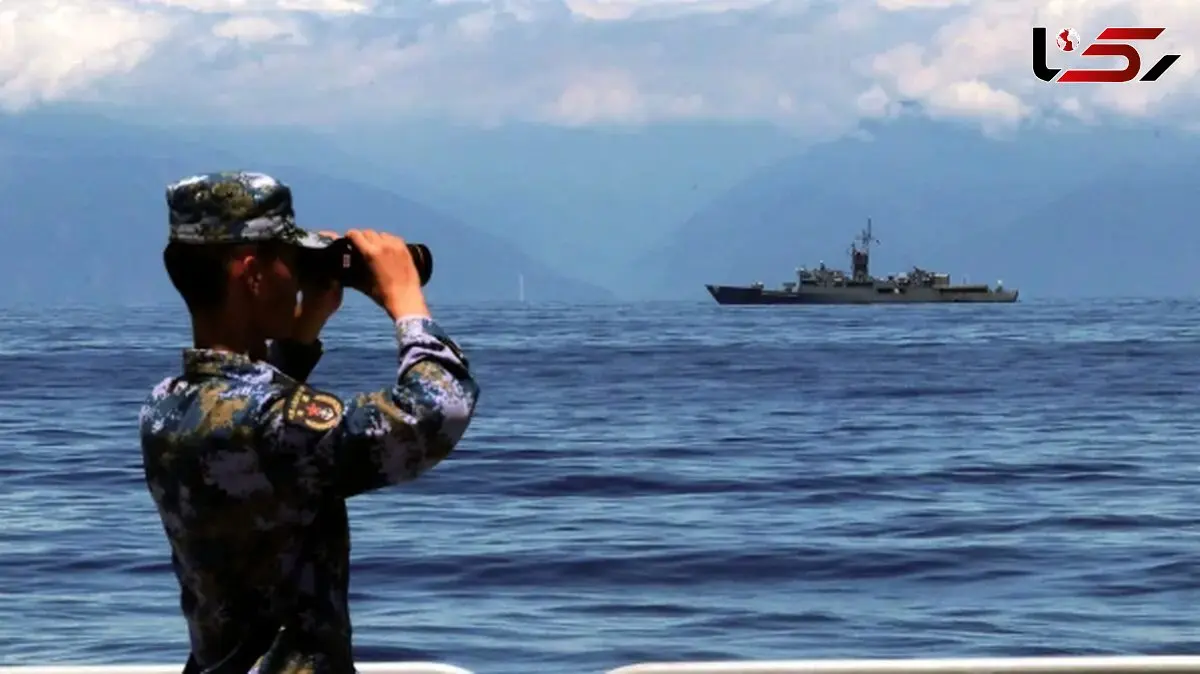Taiwan Strait at the Brink: The Ever-Present Risk of Accidental War
Rokna Political Desk: The Taiwan Strait has emerged as a focal point of global tension, with the increasing military presence of both China and Taipei elevating the likelihood of a sudden conflict. Concerns over this strategically sensitive geopolitical corridor grow by the day, as even minor incidents could escalate into a full-scale war.

The risk of an accidental war over Taiwan is particularly high due to the proximity of military forces compared to other regions worldwide. A single unintended encounter could transform a minor clash into a major conflict.
According to IRNA, the Taiwan Strait has become one of the world’s most geopolitically sensitive areas. Rising tensions between Beijing and Taipei, coupled with the expanding military activities of both sides, have heightened fears of a potential war.
Foreign Affairs magazine notes that analysts often consider two primary scenarios: a “deliberate war,” in which China calculates the costs and benefits before initiating conflict, and a “necessary war,” triggered by Taiwan crossing a political red line, such as declaring formal independence.
However, “unintentional war” or “accidental conflict” is deemed the most likely and dangerous scenario, warns Joel Wuthnow, a researcher at the U.S. National Institute for Strategic Studies. Such a war could be triggered by a minor incident or miscalculation and quickly spiral out of control.
Foreign Affairs identifies three pathways toward such a conflict: in a deliberate war, Chinese leaders seek to forcibly annex Taiwan, believing the cost to be low and the timing favorable; in a necessary war, Beijing reacts to a perceived existential threat or red-line violation by Taiwan, regardless of the cost; in an accidental war, a minor incident—such as a warning shot, border crossing, or aerial encounter—could set off a chain of actions and reactions, escalating the crisis beyond either side’s ability to retreat.
Historical precedent underscores the plausibility of such accidental wars. World War I erupted after the assassination of Archduke Franz Ferdinand, triggering a European-wide conflict within a month. The American Revolution began following an unintended British soldier’s shot in Concord. The Second Opium War ignited when Chinese authorities detained a British ship’s crew, prompting severe British retaliation and the collapse of the Chinese Empire’s resistance.
Three key factors contributed to these conflicts: the close proximity and frequent interaction of rival forces; domestic political dynamics limiting de-escalation, particularly when leaders’ reputations are at stake; and the mobilization of allies, which can escalate a dispute into a major crisis.
According to Wuthnow, all three factors are present today in the Taiwan Strait. The People’s Liberation Army (PLA) has increased its aerial and naval activity, rendering unofficial boundaries ineffective. In January 2025 alone, Chinese fighters crossed the median line of the strait 248 times, compared to 72 times in January 2024, heightening the risk of accidental encounters or misinterpretations.
Additionally, political constraints limit the flexibility of both sides. Beijing cannot easily appear to yield to the “separatist movement” without domestic backlash, while Taiwan, despite weaker military capabilities, faces significant political costs if it retreats excessively, as part of its society supports independence or autonomy.
Wuthnow also highlights the role of the United States. Although Taiwan lacks formal allies, the potential for U.S. intervention could escalate a minor incident into a larger crisis. Washington may struggle to distinguish between an accident and deliberate provocation, potentially prompting rapid military responses under domestic political pressure. Such a scenario could convince China that a preemptive strike is imminent, provoking aggressive action.
Historical examples underscore this danger, including the 2001 fatal collision between a Chinese fighter and a U.S. reconnaissance aircraft, recent confrontations in the South China Sea, and border incidents with India. While these events did not trigger war, they illustrate the heightened risk in the Taiwan Strait.
Foreign Affairs recommends reducing the likelihood of high-risk encounters to prevent accidental war. China should exercise caution near Taiwan and its islands, while Taipei should enforce prudent engagement rules. Both sides’ leaders must clearly communicate to their forces that unilateral displays are unacceptable. Establishing and maintaining backchannel communications between Taipei and Beijing during peacetime is vital, as demonstrated by U.S.-Soviet contacts during the Cuban Missile Crisis.
Wuthnow concludes that the greatest threat in the Taiwan Strait is not an intentional decision to attack but an unintentional or accidental war. He advises Washington to maintain its longstanding policy of “strategic ambiguity,” as a policy of “strategic clarity” with public commitment to immediate military assistance could increase the risk of accidental conflict. Simultaneously, the U.S. and Taiwan should develop credible contingency plans for managing tensions, as sudden and unplanned actions in such a context could result in a historic disaster.
Send Comments